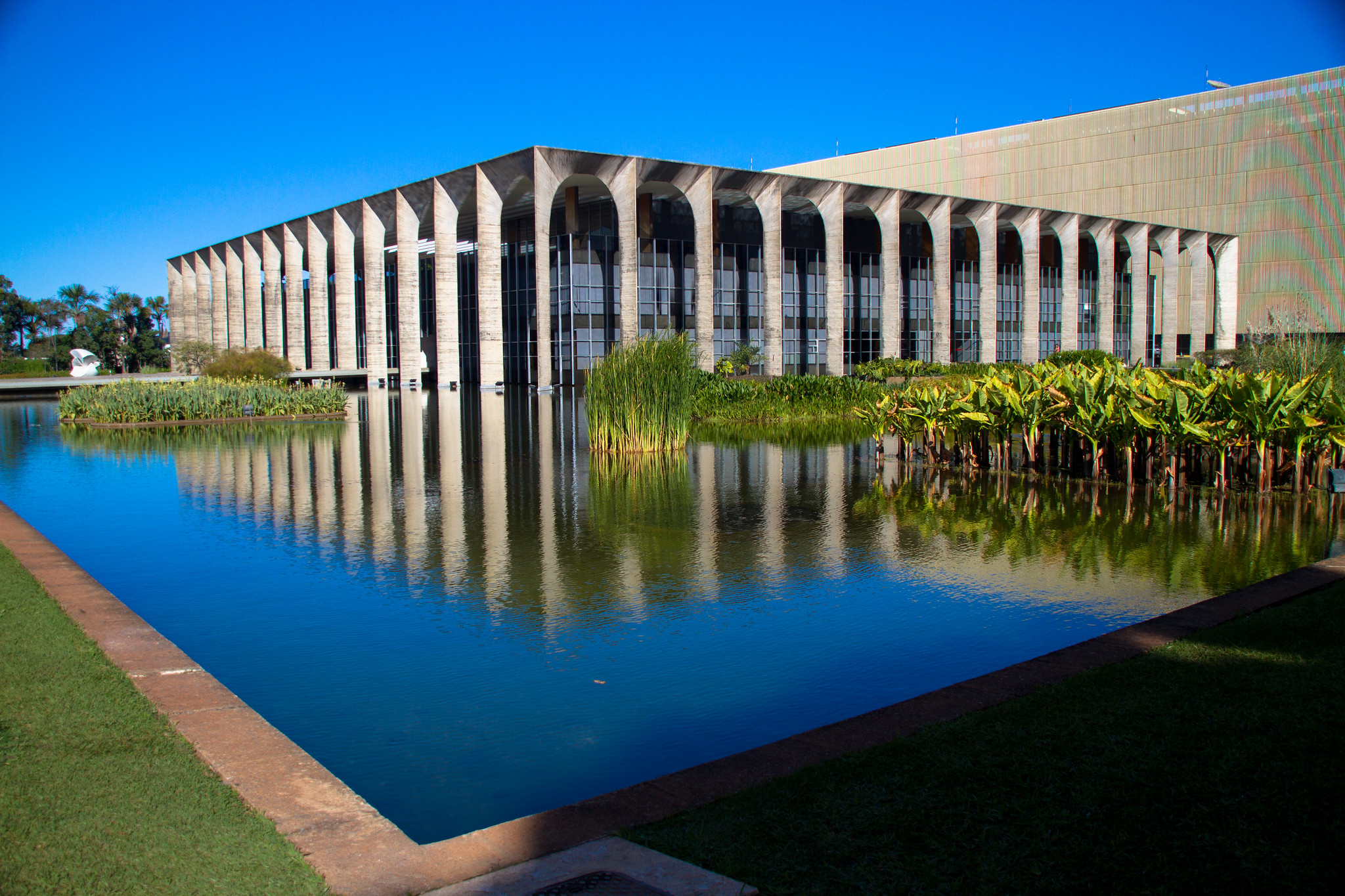A two-time Olympic gold medallist and five-time world record breaker, Brazilian triple jumper Adhemar Ferreira served as the country’s cultural attaché in Nigeria, from 1964 to 1967, and was one of the first black men to hold a diplomatic position for Brazil, write Felipe Antonio Honorato and Guilherme Silva Pires de Freitas.
Adhemar Ferreira da Silva was born in São Paulo, Brazil, on 29 September 1927. His father was a railroad worker, his mother a cook, and the family lived a humble life in the Casa Verde neighbourhood, on the north side of São Paulo. When he was around 20 years old, Adhemar, seeing someone training for the triple jump at the facilities of the São Paulo Futebol Clube (SPFC), admired the action’s beauty and, curious, tried it out without any further pretensions. Performing the first jump of his life, the tall and slender boy caught the attention of coach Dietrich Gerner, a German national who worked for SPFC’s athletics club. Adhemar showed great promise, a diamond carefully cut by the German. Having to work during the day and study at night from an early age, the only time for the jumper to train was during his lunch break. Despite the time constraints, da Silva went to four Summer Olympic Games – London (1948), Helsinki (1952), Melbourne (1956) and Rome (1960) – winning the gold medal twice in 1952 and 1956.
On the continent, Adhemar’s dominance was even greater. He won three consecutive Pan-American Games – Buenos Aires (1951), Mexico City (1955) and Chicago (1959). Added to all these titles, Adhemar also had five world records to his credit. Today, São Paulo Futebol Clube pays tribute to da Silva’s Olympic achievements with two gold stars above the club’s crest, symbolising his gold medals.
If he was brilliant inside the athletics track, off it he was no less impressive. During his life, Adhemar accumulated four BA degrees (Law, Fine Arts, Public Relations and Physical Education), was a polyglot (besides his mother tongue, Portuguese, he was fluent in English, German, Italian and Spanish), and acted as an actor in the movie “Black Orpheus”, by Marcel Camus, a film that won an Oscar, Golden Globe and the Palme d’Or at the Cannes Festival. Da Silva was also a columnist for the newspaper “Última Hora” and a broadcaster at São Paulo’s Rádio Panamericana.
The time as cultural attaché in Nigeria
The Olympic medallist held the position of cultural attaché in Nigeria, between 1964 and 1967. One of the reasons that da Silva accepted the invitation was that in the African country, he would have the possibility of experiencing black and African culture in greater depth.
Adhemar was a cultured man, fluent in different languages and an Afro-Brazilian. For writer Antônio Olinto, his predecessor in office, the presence of an Olympic champion and a black man in a diplomatic position was important for the appreciation of black Brazilian intellectuals.
Appointed cultural attaché by the then president João Goulart, da Silva arrived in Lagos in February 1964 with his wife and two children. He was introduced to several local authorities and members of the Association of Brazilian Descendants, an entity that represented the descendants of the first Africans repatriated to the continent by the Brazilian government in the mid-19th century. His arrival was covered by the Nigerian press due to his Olympic achievements.
The Brazilian used to follow sporting events in the country and once met with then-president Nnamdi Azikiwe, who revealed that he had watched the Olympic triple jump final in Helsinki (1952) when da Silva won his first gold medal. According to the cultural attaché in a statement to the Ministry of Foreign Affairs, President Azikiwe told him “I hope that, with your presence among us, Nigeria will also have its champion”.
During his stay in Nigeria, da Silva tried to make Nigerians more familiar with Brazil. As a cultural attaché, he sought to showcase the cultural aspects of Brazil. A lover of Brazilian music, the two-time Olympic champion always took a guitar with him and played Brazilian songs, in addition to presenting recordings by famous artists from his homeland, in a strategy to bring the two nations closer together through music.
The religious aspect was also quite important during his period in the African country. During his stay, he met with religious leaders and participated in celebrations. In an interview with broadcaster ESPN Brasil in 1998, da Silva stated that contact with the Candomblé religion in Nigeria made him better understand the popular traditions of Bahia, a Brazilian state located in the northeast region and which has the largest black population in the country. At the beginning of the 20th century, black religious leaders connected to Nigeria presented rituals in Bahia, creating an image of glorification of Africans in the construction of national culture.
The two-time Olympic champion said in the same interview that, during his last months in the African nation, he participated in a meeting with renowned local priests and Candomblé leaders. They gifted him with typical clothing and he was graced with a title that in the Yoruba language meant “God’s advisor”.
The issue of identity was ever-present during his stay in Nigeria. In an interview with journalist Cintia Rabaçal in 2000, da Silva was asked whether he considered himself to be of African descent – his answer was categorically “No. I’m Brazilian, I have nothing to do with Africa”. The reason for this response, according to da Silva, was because during his time in Nigeria he never heard Africans talk about Afro-Brazilianism or relations between Brazil and Africa. “They never cared about our existence, therefore I have nothing to do with them.”
Unlike his predecessors in office, all white men, da Silva never identified with Africans precisely because he was a black man who was born and spent most of his life in Brazil. According to Jerry Dávila, white Brazilians believed that they were also Africans as Brazilians, due to their faith in the so-called “racial democracy in Brazil” and that there was no prejudice in Brazil. Da Silva had a completely different life experience than the other cultural attachés and knew what it was like to be a victim of racism. This feeling was shared by Dantas during his time at the Brazilian Embassy in Ghana, since as a black man in a position of power he had no respect from his subordinates.
Back in Brazil, da Silva continued studying and working, as a sports commentator, speaker and director of a university center. At the 2000 Summer Olympic Games, in Sydney, he was an ambassador for the Brazilian delegation on his return to the country where he won his second Olympic Gold Medal. To this day, he is the only Brazilian present in the International Athletics Hall of Fame and gives his name to a special award from the Brazilian Olympic Committee that honours national athletes for their achievements in their sporting careers.
Adhemar Ferreira da Silva died on 12 January 2021 after suffering a cardiac arrest at Hospital Santa Isabel, in São Paulo. He was laid to rest in the São Paulo State Legislative Assembly and buried in the Chora Menino Cemetery, also in the city of São Paulo.
Photo credit: Public domain.





